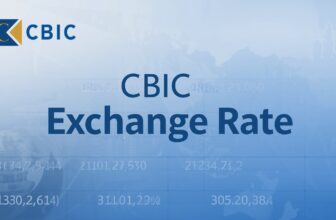
Understanding the operations and role of a forex bank is crucial for anyone involved in currency trading. Forex banks are major participants in the global foreign exchange market, offering services such as currency conversion, liquidity provision, international payment settlements, and forex risk management. Unlike retail forex brokers used by individual traders, forex banks primarily operate at the institutional level, engaging in large-volume currency transactions and influencing exchange rate movements worldwide. For traders, knowing how forex banks work, how they affect currency prices, and how they handle forex-related services can significantly improve trading decisions and risk management.
Forex banks form the backbone of the interbank foreign exchange market—the decentralized global network where banks trade currencies electronically. While retail traders and institutions rely on brokers, banks trade directly with each other or through electronic communication networks (ECNs). This system allows banks to set exchange rates, determine spreads, and maintain liquidity. In the forex ecosystem, they perform multiple functions, supporting international trade, foreign remittances, cross-border investments, and economic stability. As a result, any trader aiming to understand forex market fundamentals must look closely at the role and operations of forex banks.
Understanding the Role of Forex Banks in the Global Market
Forex banks act as liquidity providers, supplying currency to brokers, financial institutions, corporations, and government entities. When currency demand rises or falls, forex banks adjust their bid-ask spreads to match market conditions. They also engage in proprietary trading—executing trades for their own profit. Their unmatched access to liquidity and real-time exchange rate information allows them to influence the forex market significantly.
These banks determine the mid-market exchange rates used globally. The mid-market rate is the midpoint between the buy and sell rate and is often used as a benchmark. Their participation ensures smooth functioning of international payments, global trade settlements, and foreign currency financing. They also manage currency reserves for central banks and corporate clients, protecting them from adverse currency movements.
Why Forex Banks Matter to Retail Traders
Retail traders usually do not trade directly with forex banks but are influenced by their pricing behavior. Banks supply liquidity to brokers, meaning the spreads retail traders see are affected by interbank pricing. Understanding this price flow helps traders interpret market movements, especially during high-volatility events like economic news releases or geopolitical developments.
Forex banks also serve as custodians of foreign reserves and foreign currency accounts. They provide services like international wire transfers, forex credit lines, currency risk hedging, import-export financing, and corporate forex advisory. For traders, monitoring the activities and sentiment of large banks can offer indicators of future price trends in major currency pairs.
How Forex Banks Set Currency Prices
Unlike centralized financial exchanges, the forex market operates via a network of banks. The prices quoted in the forex market are derived from trading activity in the interbank network. Banks use complex algorithms, supply-demand data, real-time order flows, and macroeconomic indicators to price currency pairs. They also hedge their positions to reduce risk exposure, influencing price levels indirectly.
Major central banks like the Federal Reserve, European Central Bank (ECB), Bank of Japan (BOJ), and Bank of England (BoE) interact with commercial forex banks to implement monetary policies. When central banks intervene in the forex market, commercial forex banks often execute those orders, impacting exchange rates and liquidity.
Functions and Services of Forex Banks
Forex banks offer several specialized currency-related services through their forex desks. Some major functions include currency exchange facilitation, liquidity management, foreign accounts handling, hedging services, international payments processing, treasury operations, and proprietary trading. These services are essential in stabilizing global trade and maintaining currency flow in the international financial system.
They also provide commercial loans and trade finance, enabling companies to transact globally without exchange rate concerns. Corporate clients often use forward contracts, swaps, and options through banks to protect against currency risk. Such hedging services are also accessible to high-net-worth forex investors and institutional clients.
Key Forex Bank Services for Traders and Investors
Below are core services offered by forex banks that matter in trading and global finance:
- Currency exchange and conversion facilities
- Interbank forex liquidity and pricing
- International wire transfers and remittances
- Foreign currency accounts and deposits
- Hedging through forwards, options, and swaps
- Forex advisory and treasury services
- Trade finance and import-export settlement
- Corporate and institutional forex trading desks
Comparison Table: Forex Banks vs Retail Forex Brokers
| Feature | Forex Bank | Retail Forex Broker |
|---|---|---|
| Primary Users | Institutions, Corporations, Governments | Individual Traders, Small Investors |
| Trading Volume | Very High (Interbank Levels) | Retail Level |
| Pricing | Sets Interbank Rates | Receives Pricing from Banks |
| Liquidity Role | Liquidity Provider | Liquidity Taker |
| Services | Hedging, Cross-border Banking, Trade Finance | Trading Platforms, Margin Trading |
| Market Impact | High Influence on Prices | Minimal Impact |
Forex Bank Trading Strategies
Forex banks often use advanced trading strategies based on market fundamentals, quantitative analysis, and internal liquidity flow. They employ proprietary trading desks where experienced traders operate with institutional-level technology. These strategies may include spot trading, forward contracts, currency swaps, arbitrage trading, algorithmic systems, and risk-hedging frameworks. Their decisions often influence retail forex trends, so monitoring major bank outlooks can be valuable for retail traders.
Banks also use interbank interest rates such as LIBOR or SOFR to price certain forex instruments. Their trading strategies are built around economic data, geopolitical events, inflation trends, and interest rate policies. Understanding central bank announcements and global financial reports helps traders anticipate changes driven by forex banks.
Risks Associated With Forex Banking
Despite their large capital reserves, forex banks face risks such as currency volatility, counterparty risk, regulatory oversight, geopolitical risks, and credit exposure. They utilize sophisticated risk management and hedging tools to mitigate these threats. Retail traders can learn from such disciplined risk management frameworks to improve their trading outcomes and protect capital.
Banks also manage liquidity risk, especially during crises. Events like the 2008 financial crash, COVID-19 pandemic, and major currency crises demonstrate how fast forex volatility can escalate. Traders should understand that large-scale liquidity movements often start from institutional banking operations.
How Traders Can Benefit From Forex Bank Knowledge
Knowing how forex banks operate helps traders anticipate price movements, adjust trading strategies, and understand liquidity cycles. Traders should follow forex bank outlooks, economic research reports, institutional trade signals, and global monetary policy decisions. Being aware of spreads, order flows, and interbank trends helps retail traders stay aligned with macro-level market direction.
Retail traders should also note that banks value stable, long-term gains and risk-controlled structures—unlike short-term speculative trading. Implementing risk-reward strategies, diversifying portfolios, and using risk management tools like stop-loss orders can help traders emulate institutional discipline.
Conclusion
Forex banks play a foundational role in the global financial system by providing liquidity, stabilizing currency markets, and supporting global trade. They are the main price setters in the foreign exchange market, influencing spreads, currency trends, and trading activity. For traders, understanding how forex banks operate can provide valuable insight into market behavior, price movements, and liquidity patterns. Although retail traders do not trade directly with forex banks, staying informed about institutional forex trends, bank research reports, central bank actions, and macroeconomic conditions can lead to smarter trading decisions. By studying the structure and functions of forex banks, traders can better navigate the global forex environment and enhance their trading knowledge and strategies.
FAQs
What is a forex bank?
A forex bank is a financial institution that actively participates in the global foreign exchange market, offering currency exchange, liquidity, and international payment services while influencing currency pricing.
How do forex banks influence currency prices?
Forex banks trade large volumes of currencies and determine interbank exchange rates. Their trading decisions, liquidity flows, and hedging strategies significantly influence global currency prices.
Do retail traders trade directly with forex banks?
Retail traders typically do not trade directly with forex banks. Instead, they trade through forex brokers who receive liquidity and pricing from the interbank market, which includes major forex banks.
Why are forex banks important for traders?
Forex banks set exchange rates, provide market liquidity, and influence spreads and price volatility. Understanding their activities helps traders make informed decisions and anticipate market movements.
What services do forex banks provide?
Forex banks provide currency conversion, liquidity provision, international payments, hedging tools like forwards and swaps, and proprietary currency trading services for institutional clients.

















